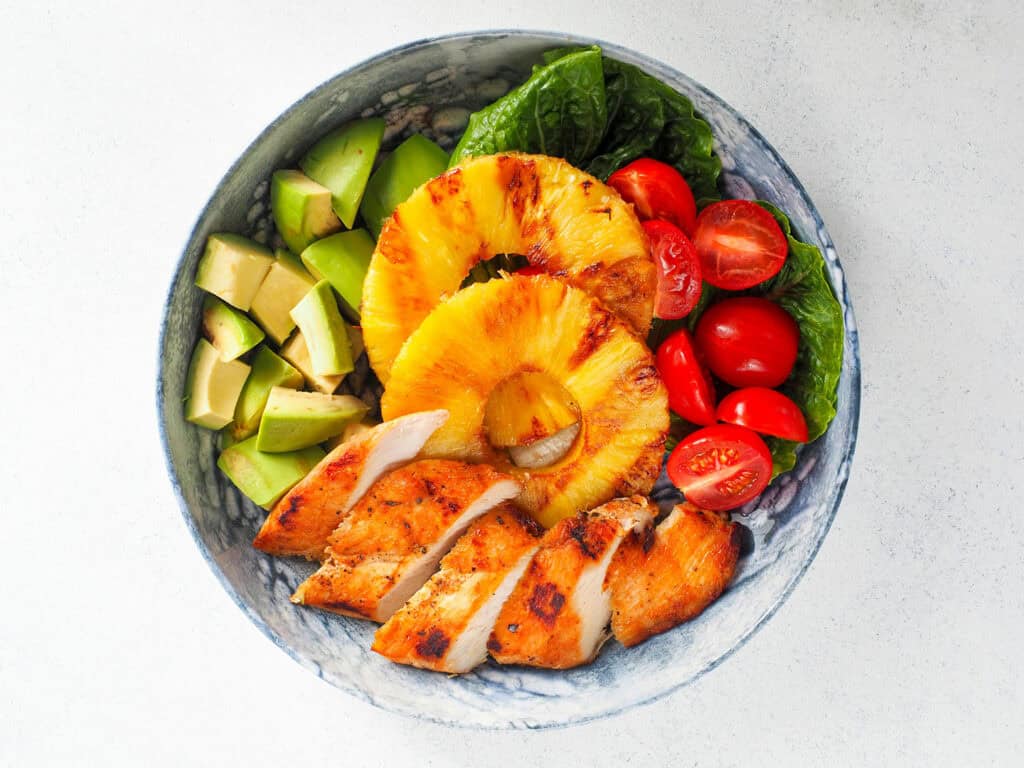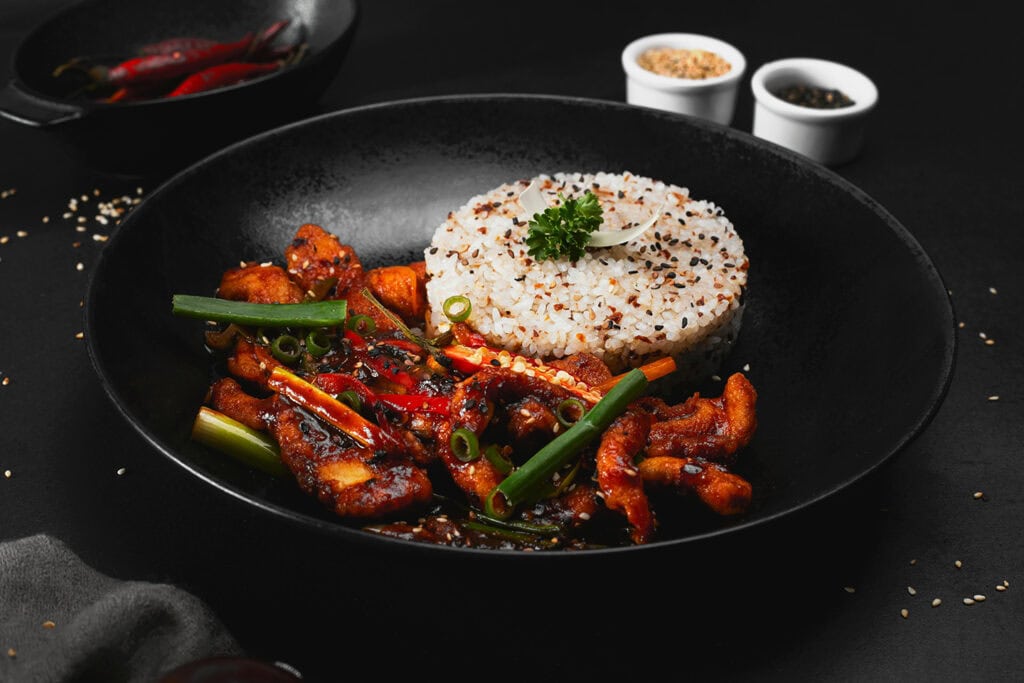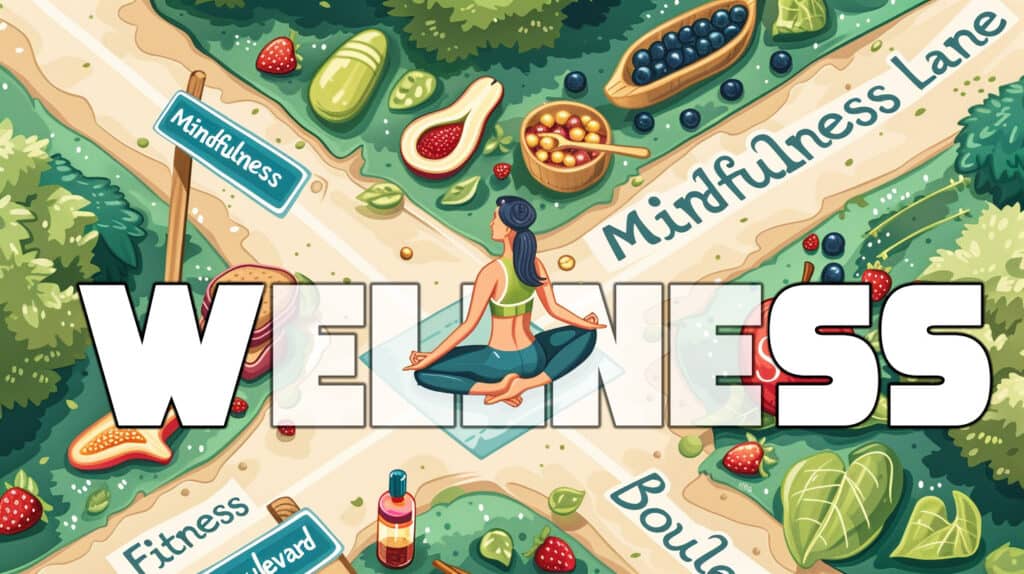Ever felt bloated or sluggish after ending a fast? Breaking a fast the right way is just as important as fasting itself. After hours without food, your digestive system is sensitive, and consuming the wrong foods can lead to bloating, discomfort, and energy crashes.
A proper refeeding process helps your body transition smoothly, supports gut health, and prevents blood sugar spikes.
Here are 8 essential things you must know when breaking a fast.
By following these simple guidelines, you’ll nourish your body, maintain energy levels, and optimize fasting benefits.
Let’s start!
- 1. Why It’s Important to Break a Fast Correctly
- 2. Best Foods to Break a Fast
- 3. Foods and Drinks to Avoid When You Break a Fast
- 4. What Doesn’t Break a Fast?
- 5. Which Drinks Break a Fast?
- 6. How to Transition Back to Normal Eating
- 7. Glucose and Its Role in Breaking a Fast
- 8. Final Tips for Breaking a Fast
- How to Break a Fast Correctly? A Recap

1. Why It’s Important to Break a Fast Correctly
When you fast, your digestive system slows down. Suddenly eating heavy or processed foods can cause bloating and stomach pain. A proper refeeding process helps your body adjust smoothly. Eating nutrient-rich foods prevents spikes in blood sugar, supports overall health and wellness.
Benefits of Breaking a Fast Properly:
- Avoids digestive discomfort
- Prevents blood sugar spikes
- Supports gut health
- Maintains energy levels
See also What Are Healthy Snacks?
2. Best Foods to Break a Fast

Choosing the right foods is important for a smooth transition back to eating. Gentle, nutrient-dense foods are the best choices. Start with foods that are easy to digest and hydrate your body.
Best Foods to Eat:
- Bone broth for hydration and electrolytes
- Avocados for healthy fats
- Eggs for protein and nutrients
- Cooked vegetables for fiber
- Soft fruits like bananas for natural sugars
- Yogurt for probiotics and digestion support
3. Foods and Drinks to Avoid When You Break a Fast

Some foods and drinks can cause bloating, fatigue, or stomach pain when consumed after fasting. It’s best to avoid them. These foods can spike blood sugar and disrupt digestion.
Foods and Drinks to Avoid:
- Processed foods with artificial ingredients
- Sugary snacks and sodas
- Fried and greasy foods
- Dairy if you are sensitive
- Alcohol and caffeine on an empty stomach
- Raw vegetables that are hard to digest
- Gummy vitamins and supplements may break a fast due to sugar
4. What Doesn’t Break a Fast?

Some foods and drinks do not trigger digestion and keep the fasting state intact. These are safe during fasting. They contain little to no calories and do not spike insulin levels.
Items That Don’t Break a Fast:
- Water (plain or mineral)
- Black coffee (without sugar or milk)
- Herbal teas (without additives)
- Apple cider vinegar (diluted in water)
- Plain electrolytes with no added sugar
5. Which Drinks Break a Fast?
Not all drinks are safe during fasting. Some contain calories or artificial sweeteners that may disrupt fasting benefits. It’s important to know which ones to avoid.
Drinks That Break a Fast:
- Sugary beverages like juice and soda
- Milk and cream in coffee or tea
- Protein shakes and smoothies
- Alcoholic drinks with calories
- Any drink with artificial sweeteners
6. How to Transition Back to Normal Eating

After fasting, reintroducing solid meals should be done gradually. This prevents digestive distress and supports overall health. Start with small portions and increase food intake slowly.
Steps to Transition:
- Begin with light, easy-to-digest foods
- Eat small meals instead of one large meal
- Drink water to stay hydrated
- Avoid excessive sugar and processed foods
- Slowly add protein and healthy fats
7. Glucose and Its Role in Breaking a Fast

Glucose plays a key role when breaking a fast. After a fasting period, your digestive system needs time to adjust. Sudden spikes in blood sugar can affect insulin response and overall metabolic health. Choosing foods with healthy fats and vegetable juices can help stabilize glucose levels.
A gradual approach supports optimal health, reduces the risk of heart disease, and aids weight loss. It also helps in lowering blood sugar and maintaining blood pressure. Eating nutrient-rich foods promotes immune function and prevents issues like kidney disease.
Slowly reintroducing food prevents discomfort from more stomach acid and allows digestive enzymes to work efficiently. A balanced diet after fasting supports a healthy lifestyle and overall well-being.
8. Final Tips for Breaking a Fast
Breaking a fast correctly helps maintain energy and overall health. Choosing nutrient-rich foods supports digestion and prevents discomfort.
Quick Tips:
- Eat slowly and chew thoroughly
- Avoid overeating right after fasting
- Stay hydrated throughout the day
- Listen to your body’s hunger signals
- Gradually return to a regular eating schedule
By following these simple steps, you can safely break a fast and enjoy lasting health benefits. Proper nutrition makes fasting more effective and enjoyable.
See also What Is the Most Effective Diet to Lose Weight?
How to Break a Fast Correctly? A Recap
Breaking a fast correctly is essential for maintaining health and maximizing benefits. Start with gentler foods like bone broth, raw fruits, or steamed vegetables to support the digestive system. Consuming healthy fats such as coconut oil can help regulate insulin levels and manage hunger hormones.
Gradually reintroducing solid foods in small portions prevents discomfort. Including essential nutrients and branched-chain amino acids supports recovery after prolonged fasting. Fasting and heart health are closely linked, and proper nutrition enhances these benefits.
Diluted apple cider vinegar and leafy greens aid digestion and balance insulin response. Following the rules of fasting diet, incorporating essential vitamins, and practicing calorie restriction can help you lose weight while maintaining energy.
Understanding what to eat before a fast also plays a role in sustaining long-term intermittent fasting success.


